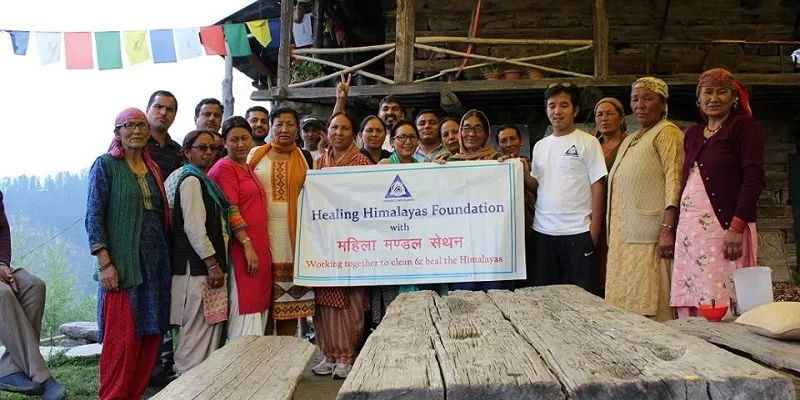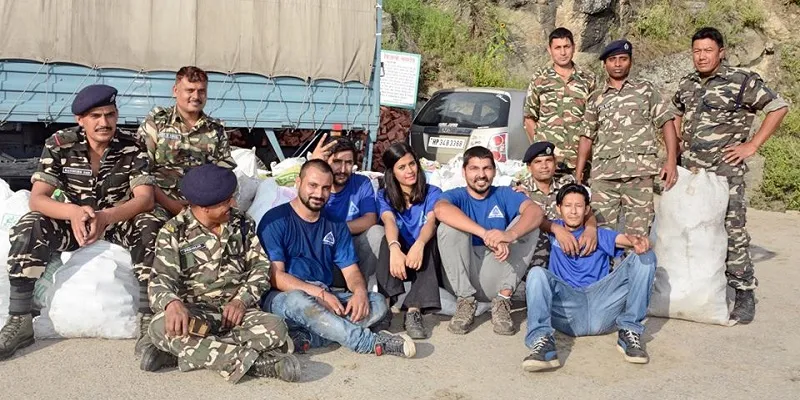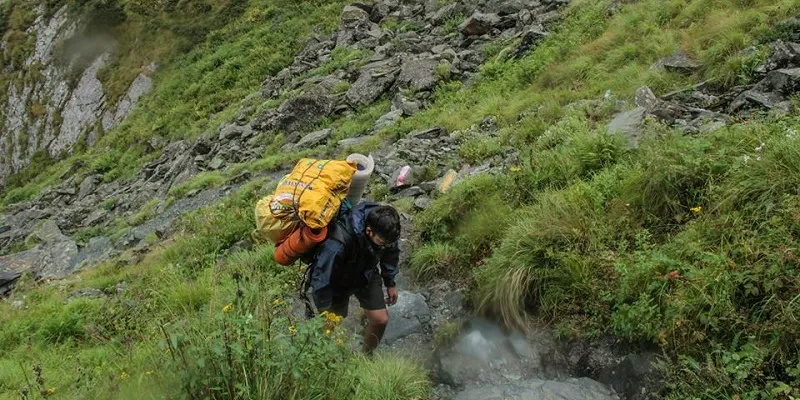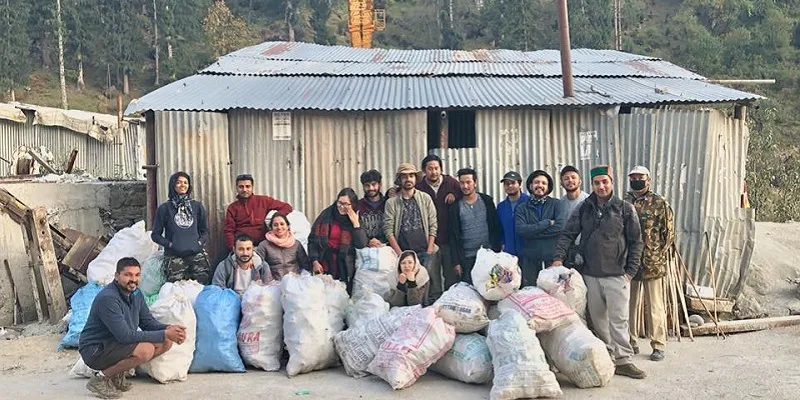These trekkers are making the Himalayas plastic free, one trail at a time
An intrepid traveller, Pradeep Sangwan aims to educate people about the growing problem of plastic waste in the hills.

Originally from Haryana, Pradeep Sangwan moved to Manali in 2009 — a decision which would create change in his life as well as of many others. On his arrival in Manali, Pradeep began developing an interest in the trekking trails around the city. Initially covering the shorter treks, he gradually moved on to longer treks in Himachal Pradesh.
In doing so, a common problem which came to his notice was the garbage generated and left behind by trekkers and hikers. He says that this increased while he lived there:
Bollywood movies popularised adventure sports, particularly Himalayan treks, and this has brought an increased number of people here. While the tourist economy has developed and the income among local populations has increased, the garbage generated was destroying the serenity of the mountains, and nobody seemed to understand the gravity of the problem.

This is when Pradeep decided to take the first step to tackle the problem. He began collecting the garbage he encountered on his treks and made a personal effort of cleaning the trails. He was also joined by his friend Vikas Kumar who has a campsite in the hills.
Together, they set an example which would contribute in the winning confidence of the people in future. While doing so, Pradeep was suggested by someone to build a platform to expand his activities and this is when Healing Himalayas Foundation came into being. As its sole permanent employee, Pradeep relies on friends and volunteers to conduct cleaning drives on treks and trails around Manali. The foundation publicises its campaigns through its website and social media and is constantly on the lookout for volunteers who believe in the cause.
Their pilot project was the Shrikhand Mahadev Yatra which is one of the toughest pilgrimage treks in the country. With a massive number of devotees using this route combined with lack of proper garbage disposal options enroute, the trail was getting polluted quickly. Kheerganga, an easier but popular route, also faced the same problem.
The foundation now provides jute bags to trekkers to collect their garbage and encourages people going down to deposit these bags in villages where they are dealt with appropriately. Pradeep says,
There are ragpickers at Kheerganga who take away the recyclable material while the rest is disposed of in the dump yards. Ideally, waste should be segregated but there has to be a beginning somewhere. There are also proposals to build waste-to-energy plants in the future.

Healing Himalaya’s work is based on three pillars, beginning with work done on the ground, involvement of local communities, spreading awareness, and educating people on correct waste handling.
Pradeep emphasises on the first pillar saying, We always begin with actual work done so that we can win the confidence of people and also show the seriousness of our intent.
He also says that working with locals is vital so that ownership of the work as well as belief in the cause is created, because only a limited impact can be created as an outsider.
The foundation has also encountered people who ask for incentives and trade-offs to work with the it. However, Pradeep has been very careful in working only with those with a common belief system as his own. In the process, he has met with optimistic as well as sceptical people and local people began joining hands with him only at a later date.
In order to involve communities, Pradeep began interacting with village level groups such as mahila mandals and youth mandals to win their confidence. He made inroads into villages by convincing people to take the problem of waste management seriously.

He says, Women are more active in this area than men who joined us only later. Even so, we worked only in those villages where we could work with the locals and they were helpful.
Recently, the foundation has adopted three villages where locals are educated about solid waste management techniques, reduced carbon footprints, etc. Regular cleaning drives are also conducted in these villages to keep up the momentum.
With Pradeep moving from Manali, he is already thinking of how to continue the efforts he began in the hills. He plans to target trekkers from the NCT region who comprise a large number of people visiting Himachal Pradesh. He believes that the garbage problem is due to poor waste management by urban populations and thus aims to change the behaviour at the source. He hopes that it will be replicated in the hills by adventure enthusiasts.







